Kazakhstan and Korea: Toward Gender Equality in Asia
Date:
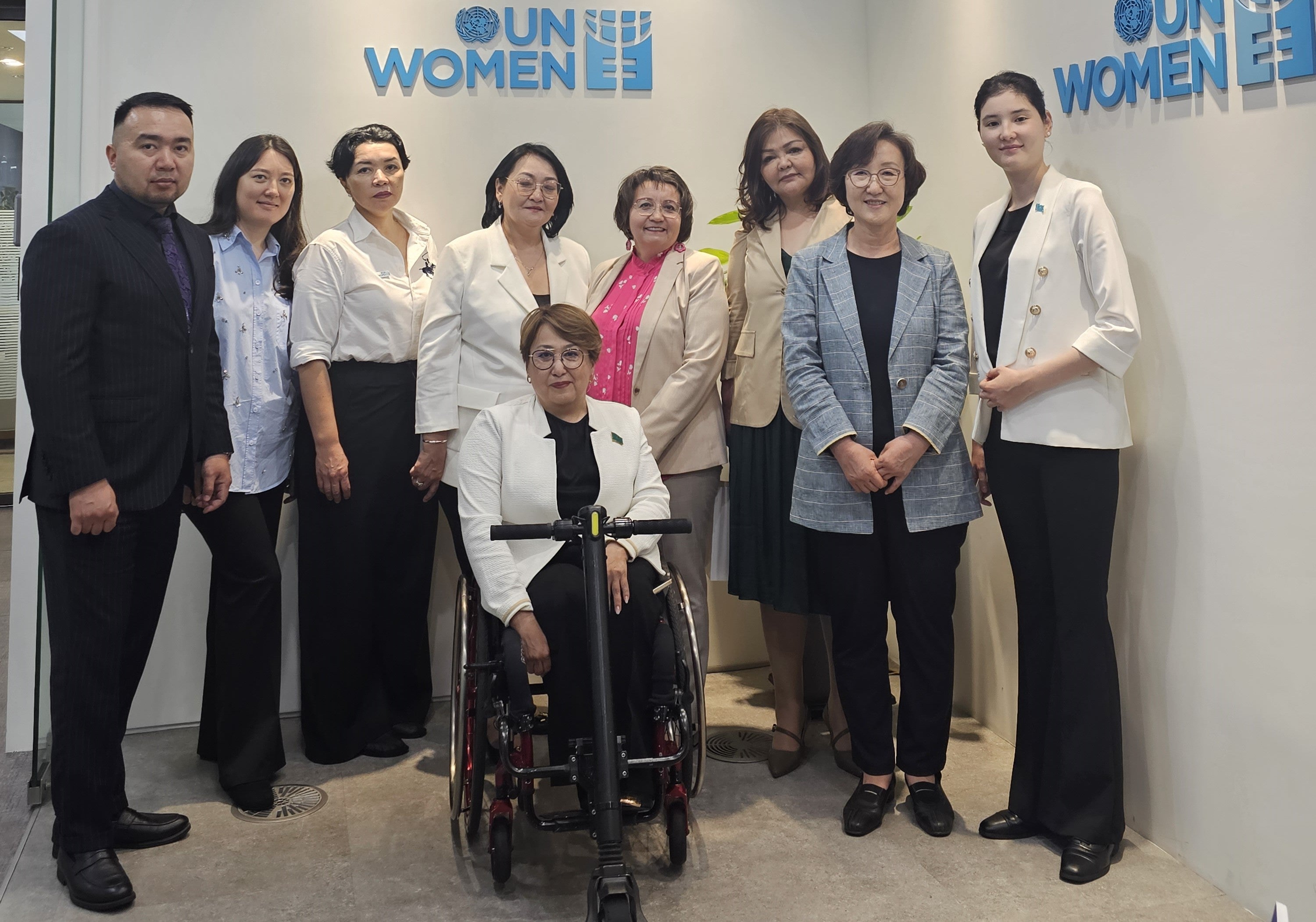
A delegation from the National Commission on Women's Affairs and Family and Demographic Policy under the President, Parliament, and Government of Kazakhstan recently visited Seoul, Republic of Korea, with the support of UN Women. The purpose of the visit was to study the work of the UN Women Centre of Excellence for Gender Equality and explore opportunities for cooperation between the two countries.
The visit began at the UN Women Centre of Excellence for Gender Equality. The Center was established in 2022, with the support of the Ministry of Gender Equality and Family of the Republic of Korea. The center is a pioneering initiative aimed at promoting gender equality and empowering women and girls in the Asia-Pacific region.
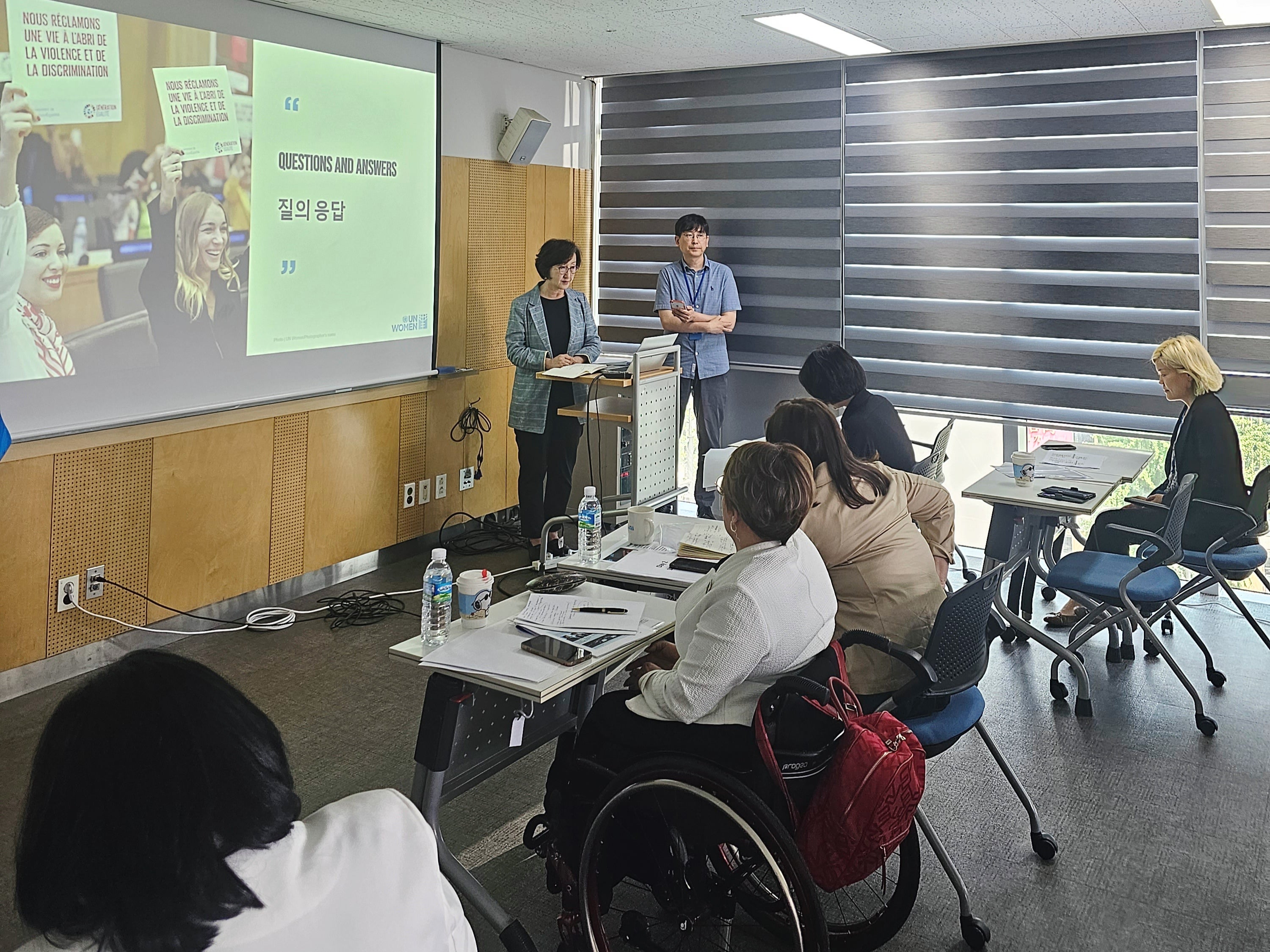
Jeongshim Lee, Director of the UN Women Centre of Excellence for Gender Equality in Seoul shared experience on the Center’s operation at political and programmatic levels. During the visit, the delegation discussed the effectiveness of national programmes to promote gender equality and family well-being with Ms. Eunju Choi, Director of the Women's Policy Bureau at the Ministry of Gender Equality and Family. They learned about the Korean government's efforts to create a policy environment that promotes women's leadership and empowerment in all areas of society. In return, the Kazakhstani delegates shared their experience in implementing gender policies and programs for the empowerment of girls and women.
"As a politician, it was important for me to see that the promotion of gender equality policies is systematic. Entire national institutions have been established and are working. If the Korean Parliament has a separate committee on gender equality, the Government has a separate ministry. Budget funds are allocated for the implementation of various programs. It was interesting for me to get acquainted with the gender budgeting program of Korea, with its indicators and budget assessments not only at the national but also at the local level", said Ms. Lyazzat Kaltaeva, Head of the Delegation, Senator, member of the National Commission on Women's Affairs and Family and Demographic Policy under the President of the Republic of Kazakhstan.
Korea, with its indicators and budget assessments not only at the national but also at the local level", said Ms. Lyazzat Kaltaeva, Head of the Delegation, Senator, member of the National Commission on Women's Affairs and Family and Demographic Policy under the President of the Republic of Kazakhstan.
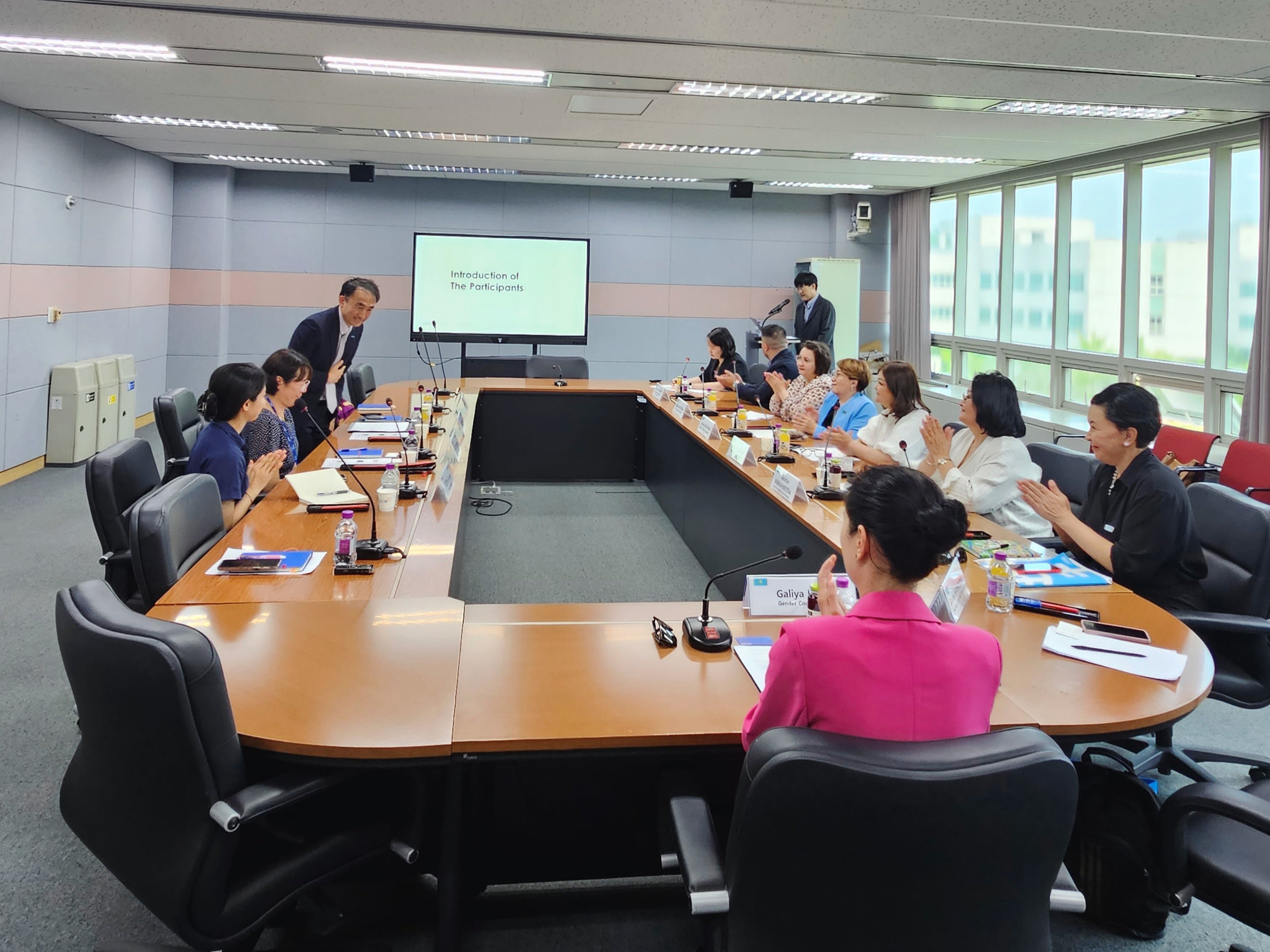
One of the highlights of the visit was a meeting between the Kazakh delegation and the Korea International Cooperation Agency (KOICA) in Seoul. The two parties discussed how Kazakhstan and the Republic of Korea can collaborate to promote gender equality and the rights and opportunities of women and girls. The fight against violence is a fight for human rights. The Korean experience in countering violence against women was presented by the Human Rights Institute of Korea.
"We visited family support centers. A total of 244 such centers operate across the country. The centers are financed through local budgets of city administrations. We need to exchange experience and continue this work," said Mr. Kairat Kambarov, Chairperson of the Committee on Youth and Family Affairs of the Ministry of Culture and Information of the Republic of Kazakhstan.
The integrated approach to helping victims of domestic violence has been successfully implemented at the Seoul Sunflower Center for many years. Globally renowned, the Seoul Sunflower Center provides comprehensive support for survivors of sexual and gender-based violence. People come here for medical care, counseling and legal support, as well as assistance in police investigations.
In Kazakhstan, the establishment of family support centers was one step in recent legislative reform to combat domestic violence, ensure safety, and protect the rights of women and children.
In Kazakhstan, UN Women works to make significant strides in advancing gender equality, empowering women and girls, and combating gender-based violence in the region. This year will mark the one-year anniversary of the launch of the Central Asian Alliance to End Gender-Based Violence in Kazakhstan. As a result of the EU-UN Spotlight Initiative Regional Programme for Central Asia and Afghanistan, the Alliance works to engage diverse stakeholders, including civil society, government, experts, academics, activists, and media.
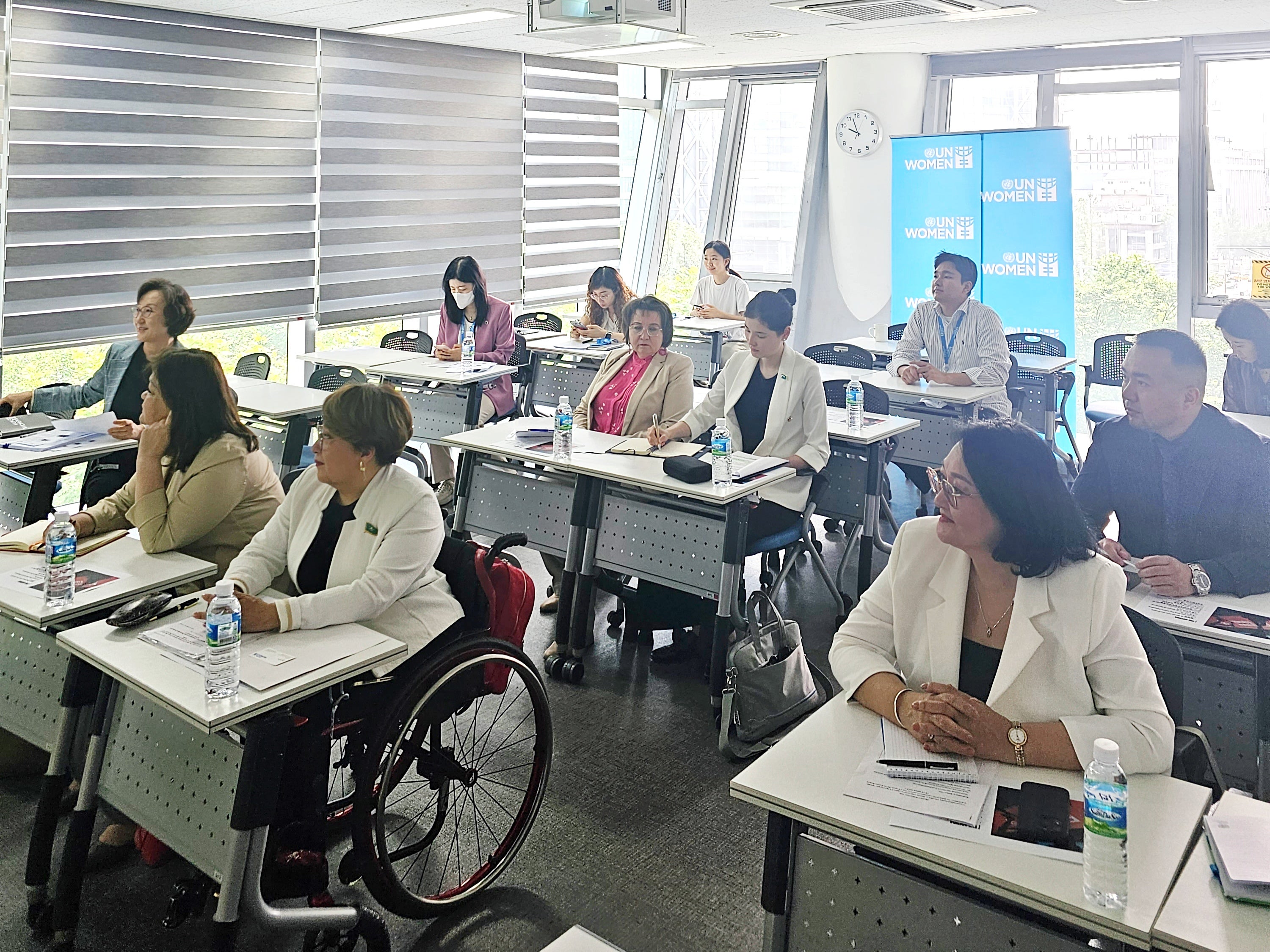
Scientific support for gender equality policy initiatives was discussed at the Korean Women's Development Institute and the Seoul Women's Resources Development Institute. The institutions focus on gender discrimination and women's economic empowerment issues. Ms. Seon-Mee Shin, a senior research fellow at the KWDI, spoke at the meeting about research on gender issues in all areas of social development.
Kazakhstani participants learned about the work of the Korea Institute for Gender Equality Promotion and Education (KIGEPE). KIGEPE educates and raises public awareness about gender equality and the prevention of gender-based violence. The institute offers training programs for the country's population, including government officials and education personnel. The institute pays special attention to promoting the interests and needs of young people in the formation of state gender policy.
The Kazakh delegation also studied the experience of the Korea Foundation for Women in Science, Engineering, and Technology (WISET) in promoting women in science. In Kazakhstan and Korea, the share of women in STEM is at the level of 21-25%. Both countries are now striving to attract more women into this field.
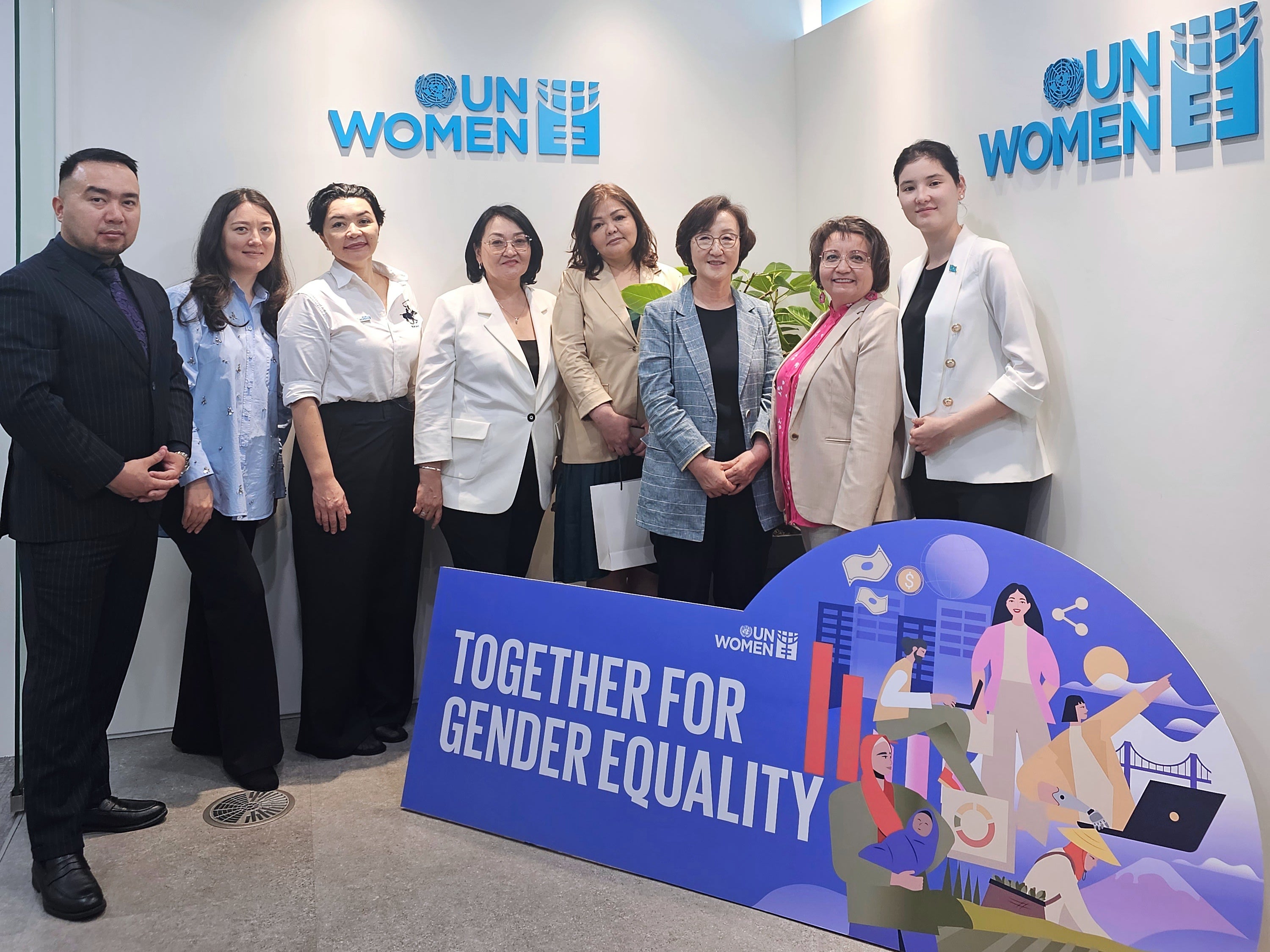
"The visit of Kazakhstan’s delegation to the Republic of Korea was fruitful for all participants. In addition to getting acquainted with the work of the UN Women Centre of Excellence for Gender Equality, the participants held multilateral talks with nine national development institutions forming the frontline of gender policy in Korea. All parties shared their mutual experience in developing national policies, implementing specific projects, and solving urgent issues on the way to achieving gender equality," summarized Ms. Dina Amrisheva, Head of Office a.i., UN Women Kazakhstan.